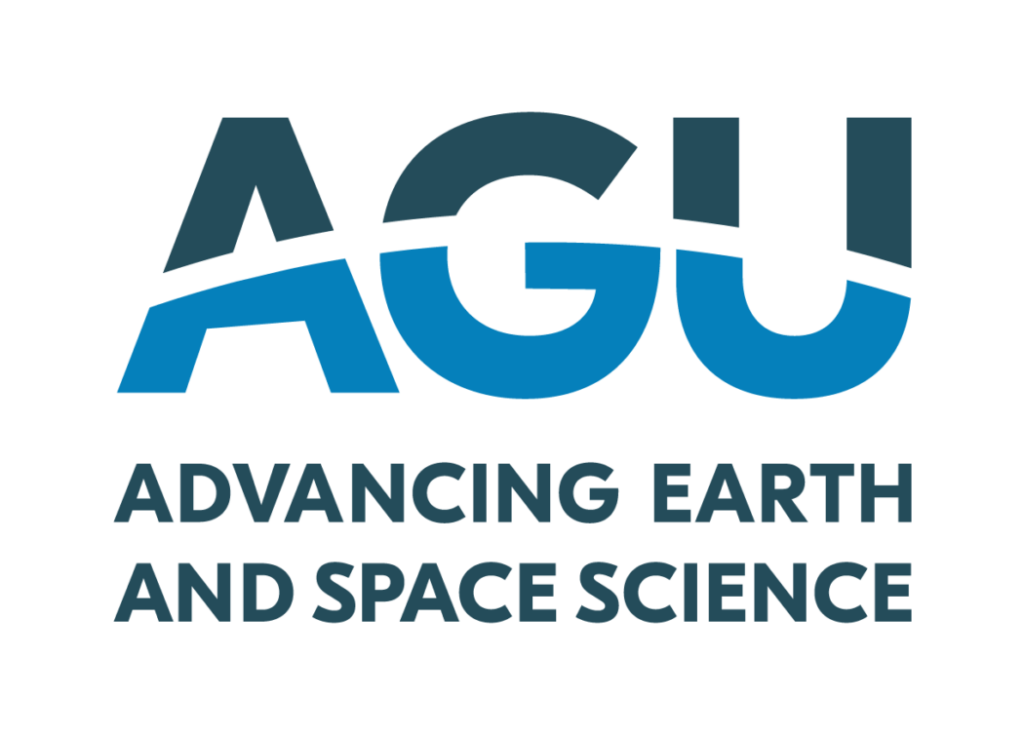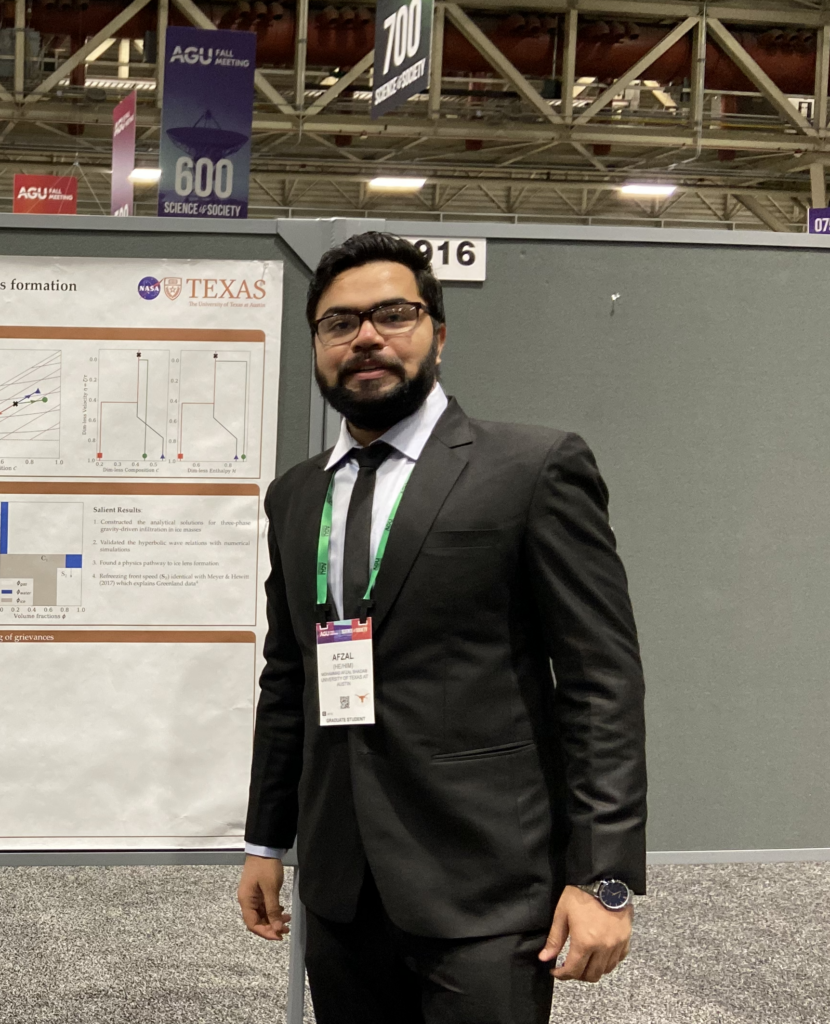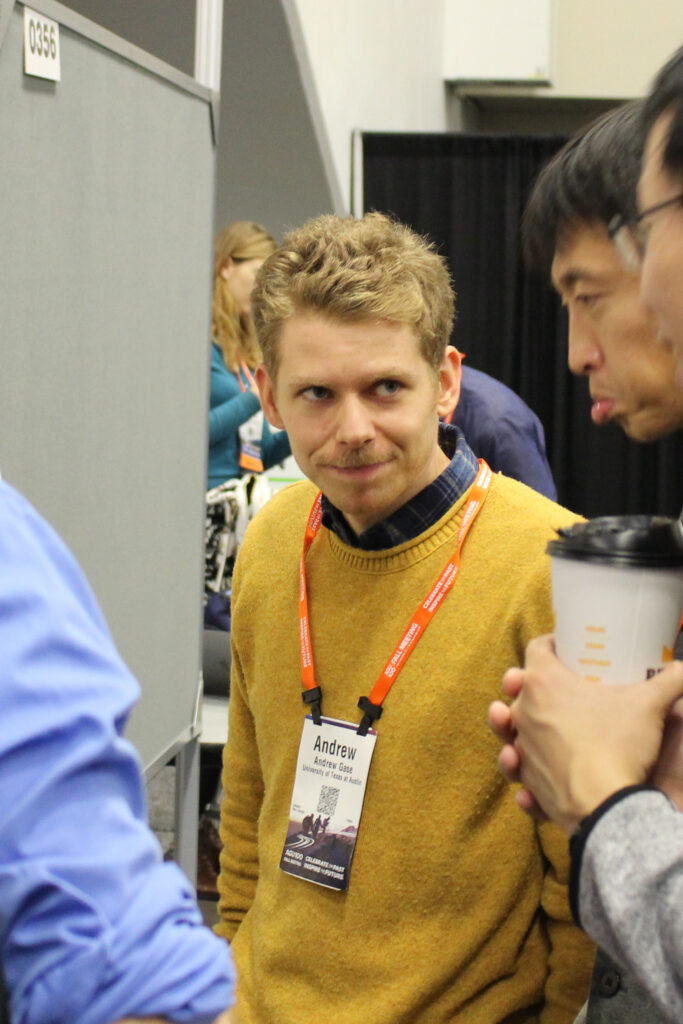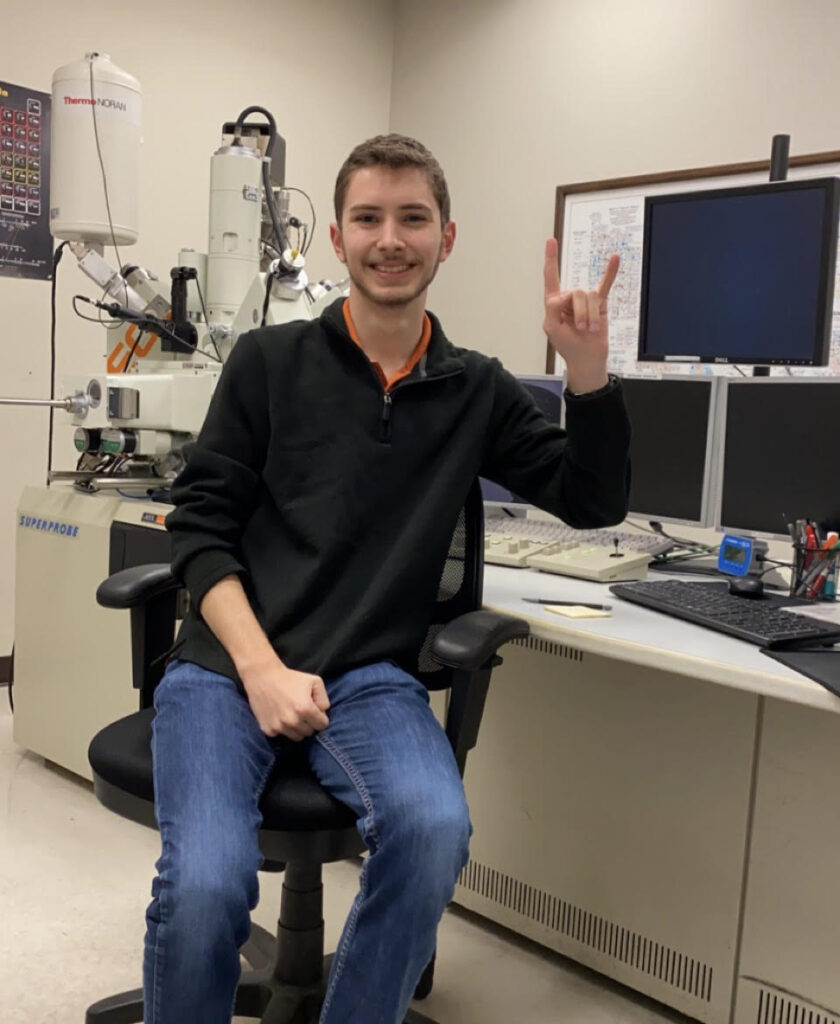Once again, Jackson School of Geosciences students were among the top student presenters at the American Geophysical Union’s Fall Meeting.
Although AGU’s 2021 Fall Meeting took place in December, the awards are announced throughout the spring semester. The winners are selected based on research quality and a student’s ability to effectively communicate their research.
As of April 20, the following students received Outstanding Student Presentation Awards:
- Afzal Shadab, Ph.D. student (also with UT Oden Institute for Computational Engineering and Sciences)
- Andrew Gase, Ph.D. student (now a postdoctoral fellow at the University of Texas Institute for Geophysics)
- Matthew Riley, Undergraduate student (geological sciences major)
The student talks are categorized based on AGU’s discipline sections (see link). The award program is designed to provide “student presenters (poster, oral and eLightning) at AGU meetings the opportunity to receive valuable feedback about their research and presentation skills that will help them advance their careers.”
Note: Please contact the Jackson School’s Office of Communications with additional OSPA awardees who should be added to the list.
Learn more about each winner.
Afzal Shadab
Presentation: Fluid Infiltration in Unsaturated Porous Medium with The Development of a Saturated Region
Afzal Shadab is a doctoral student advised by Marc Hesse at the Oden Institute for Computational Engineering and Sciences and the Jackson School. In his research, Shadab applies mathematical and computational techniques to investigate the physics of fluids moving through materials like soil, rock or ice.
The project he presented at AGU’s Fall meeting, which examined how water soaks through soil, could be a fundamental contribution to the field of hydrology.
“Winning the award was the cherry on the top,” said Shadab, whose background is in mechanical engineering, computational science and applied mathematics. “Receiving validation from the community helped me overcome my imposter syndrome.”
Shadab’s advice for a good presentation: “It requires a storyline, less text, and more visuals along with good practice.”
Andrew Gase
Presentation: Hikurangi offshore slip segmentation controlled by the distribution of subducting sediment
Andrew Gase recently graduated with a doctoral degree from the Jackson School and continues his research on subduction zones, as a postdoctoral fellow at the University of Texas Institute for Geophysics.
The research he presented at AGU Fall used an unusually large number of seismic profiles taken along New Zealand’s Hikurangi Margin to connect the presence (or absence) of slow slip earthquakes with sediments feeding into the fault. The research could help explain why some faults release energy slowly and others don’t.
“Receiving an OSPA at my last AGU meeting as a graduate student was surprising and an honor,” Gase said. “I’m thankful that AGU provides feedback and recognition to scientists at the earliest stage of their careers and I look forward to participating as a judge in the future.”
Matthew Riley
Matthew Riley is a senior year undergraduate student at the Jackson School, where he works as a research assistant in Professor Jaime Barnes’ geochemistry research lab.
At AGU, Matthew presented a research project on a group of volatile chemicals known as the halogen elements. Halogen elements like chlorine and fluorine play an important role in the chemical evolution of the Earth, its oceans and atmosphere, but not much is known about how they work and what happens to them in our planet’s interior.
To find out more, Matthew analyzed the chemistry of exhumed xenoliths (chunks of mantle rock ripped from the interior by rising magma) and constructed a record of their geochemical past. His findings are an important step into figuring out the quantity of halogen elements in the Earth’s mantle and how they might be connected to deposits of rare earth minerals.
For Matthew, doing the research was an opportunity to put what he’d learned in class into practice, and to challenge himself:
“Having an individual project and seeing it progress into a presentable product was by far my most rewarding experience as an undergraduate,” he said.
“Getting the award caught me off guard, it was completely unexpected. But looking at the certificate now I am filled with joy and forever thankful for my supervisor Dr. Jaime Barnes and my graduate advisors Meghan and George who helped me achieve something I will always look back on.”
This story originally published by the Jackson School of Geosciences.




